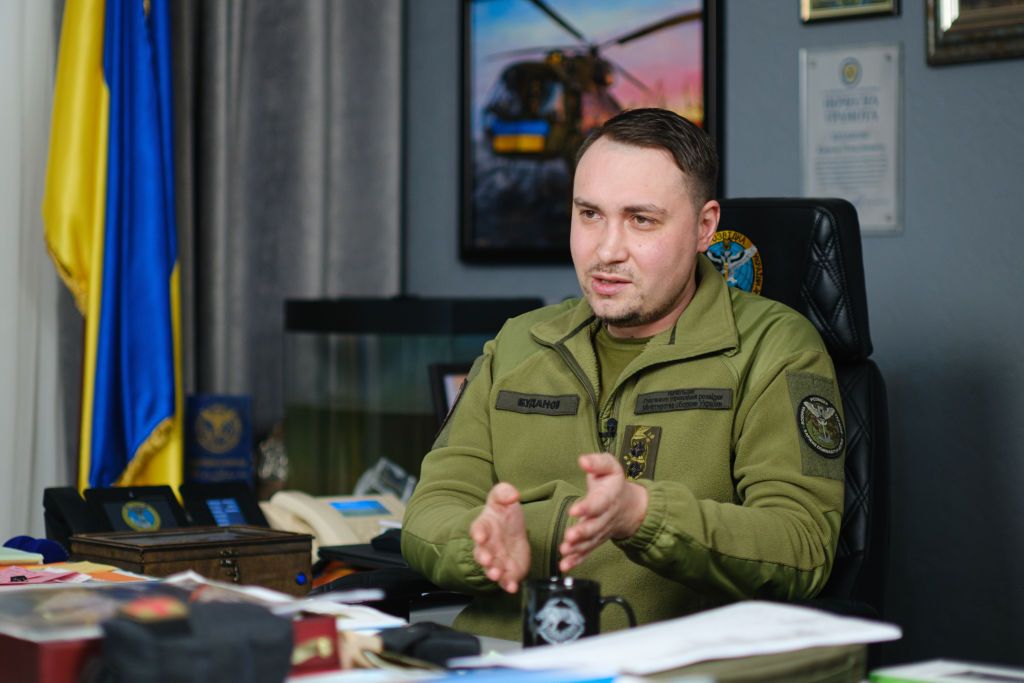Kyrylo Budanov, Ukraine’s military intelligence chief, warned on March 31 that the railway Russia is building in the occupied parts of Ukrainian regions could pose a serious problem for Kyiv. The railway is being constructed between Russia’s port city Rostov-on-Don and occupied Crimea, as an alternative to the Crimean Bridge, running through key occupied strategic areas like Donetsk and Mariupol. Budanov believes that Ukraine will be able to cope with this issue, but did not provide further details. Russian President Vladimir Putin announced the completion of the railway segment between Rostov-on-Don and Berdiansk after the recent presidential election.
Andrii Yusov, a spokesperson for the military intelligence agency (HUR), stated that the railway Russia is building in the occupied territories of Ukraine poses a serious challenge and is an important target for Ukrainian forces. Due to Ukraine’s frequent attacks on Crimea, the Crimean Bridge is not fully operational, leading Russia to strengthen the railway connection. The mission of Ukraine is to prevent Russia from completing the construction of this railway. The ongoing conflict in the region has escalated tensions and heightened concerns about the strategic implications of this infrastructure project.
Chancellor Olaf Scholz of Germany has repeatedly denied the delivery of Taurus long-range missiles to Ukraine, despite Ukraine’s request for them. Scholz emphasized the importance of prudence and the entitlement of citizens to safety, suggesting that the delivery of such missiles could escalate the conflict further. Germany’s hesitation to provide military aid to Ukraine reflects a larger debate within the European community about the appropriate response to the ongoing conflict in the region. The decision to withhold these missiles highlights the complexities of navigating international relations and balancing diplomatic considerations with strategic military support.
The construction of the railway in the occupied regions of Ukraine by Russia represents a significant challenge for Ukrainian forces and adds to the complexity of the conflict in the region. The strategic implications of the railway project, connecting key areas like Rostov-on-Don and Crimea, highlight the ongoing tensions between Ukraine and Russia. The completion of this railway segment could potentially strengthen Russia’s military presence in southern Ukraine, requiring Ukraine to enhance its defensive capabilities. The threat posed by this infrastructure project underscores the importance of continued monitoring and vigilance by Ukrainian military intelligence.
The geopolitical dynamics of the conflict in Ukraine, including Russia’s military aggression and occupation of Ukrainian territories, have led to increased security challenges for the region. The construction of the railway by Russia is just one example of the ongoing efforts to solidify control over key strategic areas and enhance military capabilities. As Ukraine continues to navigate these challenges, support from the international community, including Germany and other European allies, is essential in addressing the complex security concerns in the region. The debate over the delivery of Taurus missiles reflects the broader discussions on military aid and assistance to Ukraine in the face of Russian aggression.
In conclusion, the situation in Ukraine remains volatile and complex, with ongoing military tensions and strategic maneuvers by both Russia and Ukraine. The construction of the railway in the occupied territories represents a significant development that adds to the challenges faced by Ukrainian forces. The response of international actors, such as Germany, to requests for military assistance is a critical aspect of the conflict resolution process. As Ukraine continues to defend its sovereignty and territorial integrity, cooperation and support from allies will be crucial in addressing the evolving security landscape in the region.


